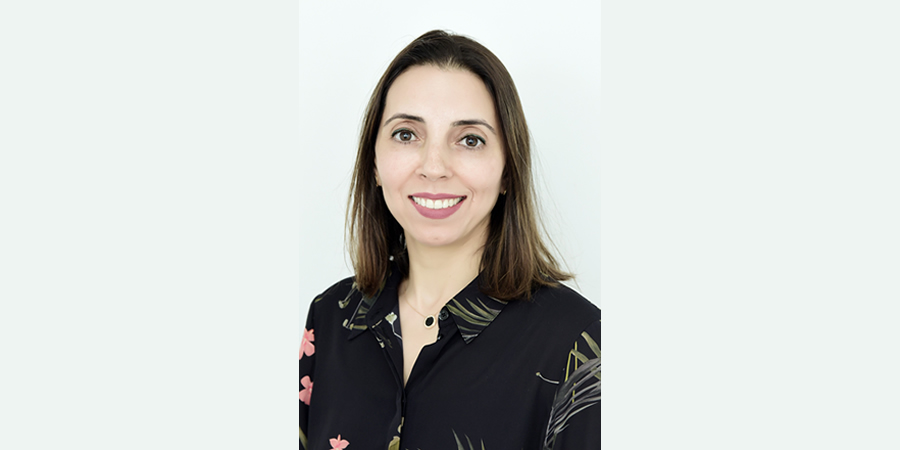In an exclusive interview with Telecom Review, Zeina Mokaddem, VP, regulatory and market access at Inmarsat, gave us her point of view about women empowerment and discussed the essence of working within the satellite communications industry.
The satellite industry is a fast-paced environment, playing a major role in connectivity and technology innovation. Despite the male-dominated nature of the industry, Zeina brings her experience and vision to the table as part of her leadership role.
First of all, can you give us an overview of your professional background?
I started off in engineering and graduated from the American University of Beirut. My first work experience was at the Beirut International Airport with the Consolidated Contractors Company group. After graduating, I decided to pursue a Master’s degree in Engineering Management. The combination of the degrees, along with a passion for new challenges and languages, opened up new opportunities for me.
I ventured into consulting with Access Partnership in London at the time. This was my first experience of the exciting world of telecoms regulation. I joined Inmarsat in Dubai in 2012. I am now leading the global market access team within the company to ensure we have the required licenses and spectrum access for our current and future services.
What are the challenges you faced as a woman while working in a pioneering, technology-driven company?
These varied, from minor ones such as questioning looks on a construction site to complete dismissal in a taxi ride because the taxi driver would only address my male colleague. These may seem trivial but they underpin a wider problem that requires society as a whole to be aware of the merits of a thriving equal gender economy. That said, I must say I was lucky in my journey to date; I had excellent mentors and coaches along the way, the first one of whom was my father.
As the VP of regulatory and market access, what is your process in handling strict requirements needed by Inmarsat to comply with various regulatory frameworks?
The challenge and excitement come from the need to balance a global operator’s requirement with a particular country’s jurisdiction and laws. Satellites are by their very nature operating across borders. Yet, many countries still impose cumbersome licensing procedures at the domestic level, which severely limit satellite services.
To ask satellite operators, especially global ones, to comply with these individual requirements in all jurisdictions under their satellite footprint will hinder digital transformation in those places that need it the most. So many people worldwide still do not have access to the internet and barriers need to come down to tackle this challenge. Added to that is each operator’s own set of rules and requirements to follow. It’s a fine balancing act and one that is negotiated at the international, as well as the national, level.
At Inmarsat, we work with the international regulatory community that is the UN’s International Telecommunication Union (ITU), as well as with the national regulators to shape positive regulatory frameworks for Inmarsat services.
How can the satellite communications industry innovate further with Inmarsat?
To this date, almost half of the world remains unconnected. The industry’s focus remains on enabling a better-connected world. Satellite technologies extend the reach of communication solutions globally, not only into rural and remote areas but also into the world’s skies and onto its oceans (the latter being 70% of the planet). These global maritime and aviation trade routes cannot be served in any other way. They rely uniquely on satellite communications.
At Inmarsat, we play our part in connecting the unconnected and ensuring people are connected wherever they are. We have invested in seven new satellites that will launch in the next four years in order to do just that. These will be ground-breaking mobile broadband Ka-band satellites, two of which will cover the Arctic, while two others will also carry new payloads for our trusted and resilient L band network, that continues to save lives at sea and in the air.
In your opinion, what more can be done to achieve gender equality and empower women?
In my view, the issue can only be resolved when we address the root problem. Society and education are key for a proper and holistic change to ensure gender equality. We should encourage the young female generations to join Science Technology Engineering and Mathematics (STEM) careers from their early years at schools. A wider change in mindset and social behavior is also needed to enable a thriving ecosystem.
At the corporate level, lots of initiatives can help further advance this change; ensuring diverse representation at C-level and in senior roles, flexible working hours to accommodate working parents, formal mentoring programs, and support groups, among others. At Inmarsat, we have made a commitment to empowering women through our Women in Inmarsat (WIN) network. This trusted forum provides opportunities for women to manage and grow their careers and to raise awareness within a supportive community.
Outside Inmarsat, I am also pleased to be contributing to women empowerment as co-chair for the Network of Women for WRC23 (#NOW4WRC23) for the Arab League’s Arab Spectrum Management Group (ASMG). The initiative is geared at increasing the number of women participating in and taking leading roles in the ITU Radiocommunication Sector (ITU-R). I was fortunate to lead a particular Agenda Item for the ASMG during WRC-19 in Sharm el Sheikh and we would like to see many more women speakers and chairs at the next cycle during the upcoming WRC 2023 planned to be hosted in the UAE.









